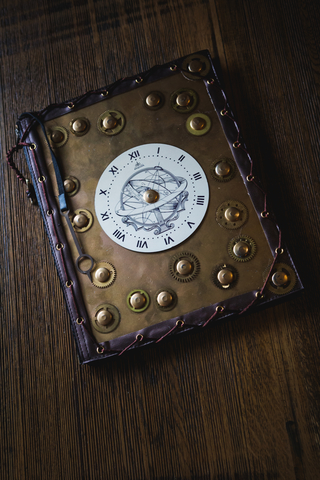Is Indie Publishing For Everyone?
Oh Amazon, Oh Hachette … Oh, Lord!

5 Reasons to Self-Publish Your Business Book
Holly Robinson is a traditional author who went indie. After self-publishing once, she decided to go back to her traditional publishing house and pick up where she left off. I can’t blame someone for that.
A few days ago, she wrote a stunning blog post where she attempts to bust 4 myths of publishing. The article later ran as a reprint at Huffington Post. Those myths, in a nutshell, are:
- Publishers are out to screw authors
- Indie authors have more control
- Indie authors spend more time marketing
- It’s faster to self-publish
Her take on these 4 myths are as follows: Not true, somewhat true, somewhat true, and true.
Okay, that’s hardly myth-busting, but I applaud her willingness to speak up as a hybrid author and be honest about the differences between going traditional and going indie. Not everyone appreciates that.
Why Is There A Prejudice Against Traditional Publishing?
The Passive Voice sponsored quite a debate about Holly’s blog post in response to some of her comments, and The Passive Guy’s commentary which followed. I love reading his blog, but I noticed in the comments that there is a big prejudice against traditional publishers. Many self-published authors seem to be bitter against traditional publishers for some reason. I can’t imagine why.
Of course, I understand that traditional publishing’s business model may be based on outdated practices and philosophies. I’m a big believer in the disruptive technologies that allow writers to pursue their own paths to success without the need for publishers and agents. However, many traditionally published authors continue to make money and are happy with the deals they have with their publishers. Holly seems to be one of them.
So what are the problems with traditional publishing? Why do some authors insist on doing it all themselves? It’s not hard to figure out.
- Traditional publishers still pay royalties on a biannual schedule; Amazon pays monthly
- Many traditional publishers do nothing more than list your book in their catalog. If an author wants marketing, he’ll have to do it himself. In that case, you may as well publish it yourself. That makes perfect sense. However, most indie authors have no way of getting their books into big box chain stores like Barnes & Noble. The upside is, as long as Amazon is leading the pack in indie sales, they may not have to.
- You get a much less bigger piece of the pie if you publish traditionally than if you self-publish. In other words, your royalties are 25% on the top end. If you self-publish, Amazon pays you 70% of the cover price of your book through their Kindle Direct Publishing. On the other hand, to be competitive, indie authors have to sell their books for less than their traditional counterparts. Compare 70% of $2.99 or $4.99 to 25% of $25.00 (hardcover price). Caveat: Royalties for mass market paperback tend to be lower with traditional publishers and may be more comparable to selling e-books (one blog post can’t possibly reveal all the ins and outs of the differences between traditional and indie publishing financial reports).
- With Amazon, you can see all of your sales and upcoming earnings any time you want. With traditional publishing, you typically don’t have a clue until you get a check in the mail. However, as Holly Robinson pointed out in her blog, this is changing some. Some publishers are beginning to offer author portals, which allow authors a way to check their sales and royalties.
- The publishing cycle with traditional publishers is incredibly slow. It can take up to two years to get a book on the shelves, even with a small publishing house. If you do it yourself, it can be done in one month. Or less.
There are a lot of advantages to self-publishing. But there are some disadvantages, as well. Keep in mind that traditional publishers understand their markets, in a general sense. They know how to package a book that will sell. They’ve been doing it for years and they have it down to a science. That doesn’t mean they’ll always be right in choosing an author, a title, or a marketing plan. But it does mean they have some valuable experience that independent authors can learn from.
On my end, I see no reason to be angry or upset with traditional publishers for running their businesses the way that the publishing industry has always operated. It’s difficult to change on a dime. That said, increased competition should naturally lead to positive changes, which will help authors who do decide to pursue traditional publishing.
Is Traditional Publishing a ‘Choice’?
The snark that I find the most entertaining among independent authors are the snorts that come when someone mentions traditional publishing as a choice. The attitude is this: Since publishers can reject my manuscript, and me, I really don’t have a choice. I can publish my own book and get better treatment from my publisher.
Sure, you can do it yourself. Then you’ll have to take responsibility for your own failures. Of course, you get to enjoy the fruits of your successes, as well.
Simple truth: There are no guarantees in life.
Whether you pursue traditional publishing or self-publishing, you’ll have to live with your decision. There’s no guarantee you’ll succeed. There’s no guarantee you won’t. And while you have no control over whether an agent or a publisher chooses to accept your manuscript or represent you, you do have a choice in whether you pursue that route. If you make that choice, you are deciding to accept the responsibility that comes with it. The possibility that you might fail.
It’s time for a more level-headed discussion about the publishing options. Do you want to take 2-5 years out of your life to pursue traditional publishing with the possibility that you might succeed according to rules that are a bit outdated but slowly adapting to meet the demands of the 21st century, or do you want to take that same amount of time and pursue the possibility of success (and failure) by doing it all on your own? For many authors, the best course of action is the latter. It makes a lot of sense. For others, maybe not.
If you already have a traditional publishing career, then I would not expect you to jump ship and go out on your own. That doesn’t mean you can’t publish a few titles on your own–maybe even under a pen name. But you have to do what is right for you.
If you are not a published author and have no desire to publish your own books and have no interest in learning to use the technologies that will help you get your books into readers’ hands, then maybe self-publishing isn’t for you. Are you willing to spend the time on publishing endeavors, which will take away from your writing, or would you rather take your chances on the traditional path?
No one can answer these questions for you. You have to answer them for yourself. Just be sure you do it with the proper education and knowledge, which you can only obtain through research and by listening to others who have walked these paths before you.


